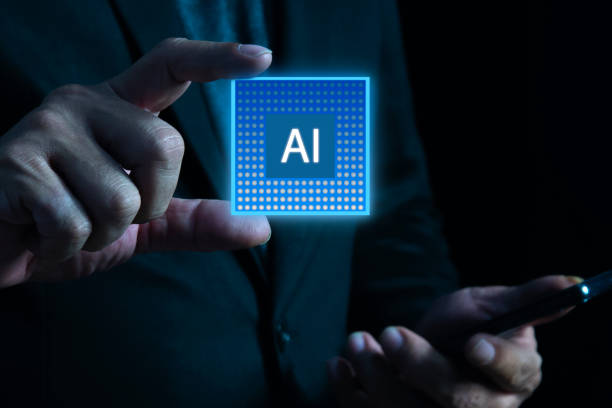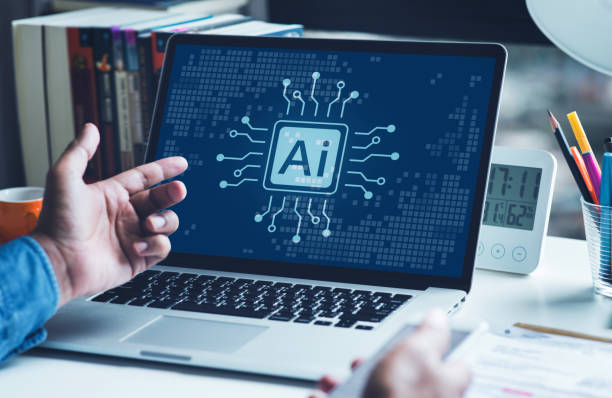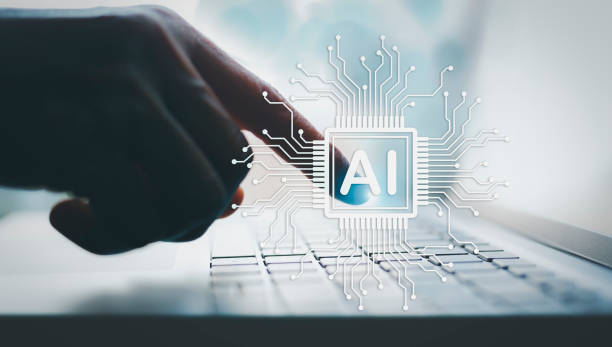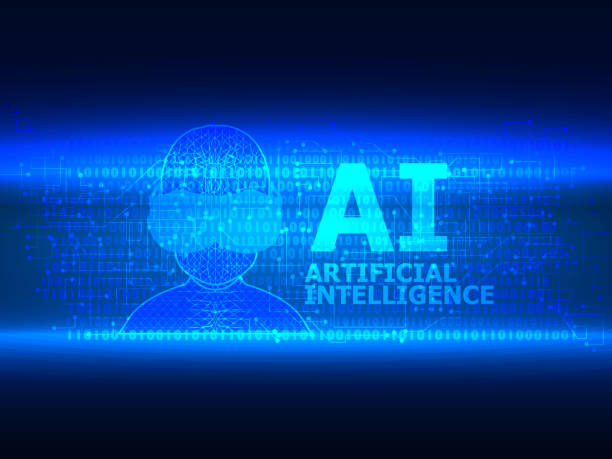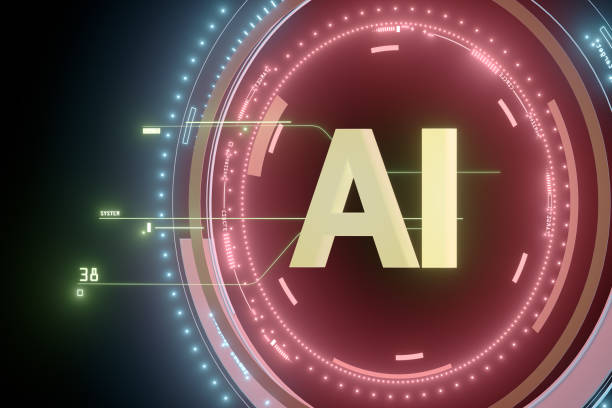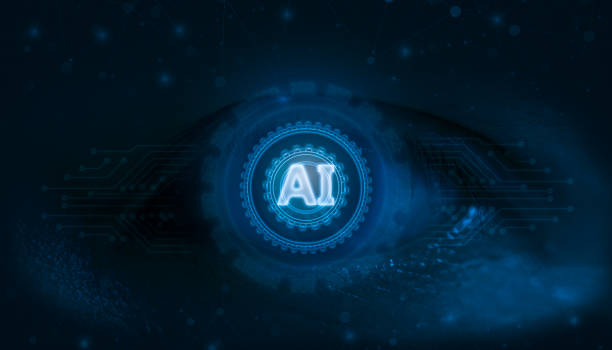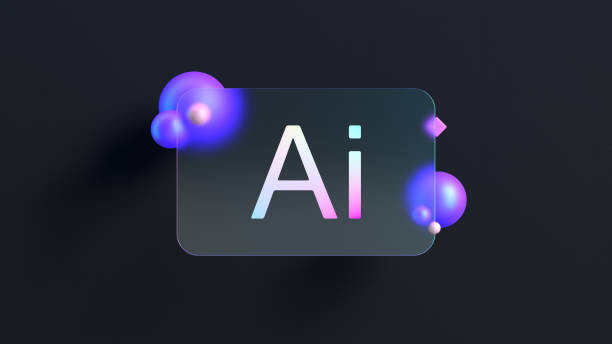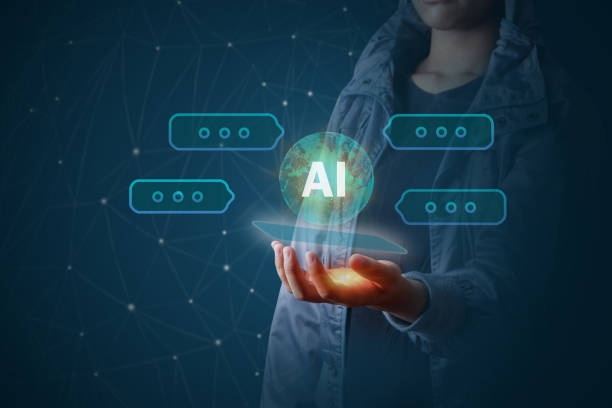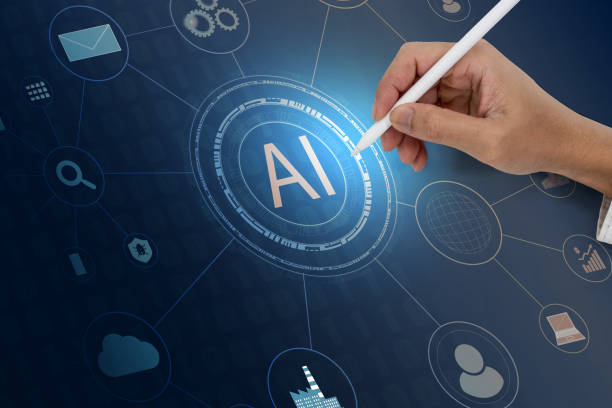Introduction to Mobile AI Applications and Basic Concepts
Today, #Artificial_Intelligence (AI) is increasingly penetrating our daily lives.
One of the most prominent manifestations of this influence is the expansion of Mobile AI Applications.
These applications, leveraging complex algorithms, are capable of performing tasks that were previously only possible by humans.
In this chapter, we will examine the basic concepts of artificial intelligence, the types of algorithms used in mobile AI applications, and how they work.
In fact, a mobile AI application is software that, using artificial intelligence techniques, attempts to solve various problems or provide intelligent services to users.
These applications can be used in various fields such as image recognition, natural language processing, prediction, and optimization.
For example, applications that have the ability to recognize faces in images use deep learning algorithms to identify and categorize faces.
Or applications that translate texts use advanced language models to understand and translate different languages.
Artificial intelligence generally refers to the ability of a computer system to mimic human cognitive functions.
These functions include learning, reasoning, problem-solving, and understanding natural language.
Did you know that a poorly designed online store can drive away up to 70% of your potential customers? Rasaweb transforms your sales with professional and user-friendly e-commerce website design.
✅ Significant increase in sales and revenue
✅ Complete optimization for search engines and mobile
⚡ [Get free consultation from Rasaweb]
Diverse Applications of Mobile AI Applications in Daily Life
Mobile AI applications offer a wide range of applications in our daily lives.
These applications include:
1.
Voice Assistants Voice assistants such as Siri, Google Assistant, and Alexa use natural language processing to understand users’ voice commands and perform tasks such as setting reminders, playing music, and answering questions.
2.
Translation Applications Applications such as Google Translate, using advanced language models, are able to translate texts and conversations into different languages.
3.
Image Recognition Applications Applications such as Google Lens can identify objects, texts, and places in images and provide related information.
4.
Health and Fitness Applications Applications that help track physical activities, provide nutritional advice, and diagnose diseases.
5.
Online Shopping Applications Applications that, by analyzing users’ shopping behavior, offer personalized product recommendations.
6.
Entertainment Applications Applications that offer smart games, augmented reality filters, and customized content.
This variety of applications shows that Mobile AI Applications are rapidly becoming an integral part of our digital lives.
These applications make life easier for us.
Advantages and Disadvantages of Using Mobile AI Applications
Using Mobile AI Applications has several advantages.
These applications can:
– Improve Productivity By automating tasks and providing relevant information, Mobile AI Applications can help users save time and effort.
– Personalize User Experience By analyzing user behavior and preferences, these applications can provide customized content and services.
– Make Better Decisions By providing accurate information and advanced analysis, Mobile AI Applications can help users make more informed decisions.
– Increase Accessibility Applications designed for people with disabilities can help them perform everyday tasks.
However, using Mobile AI Applications also has disadvantages:
– Privacy Concerns The collection and use of personal data by these applications can raise concerns about user privacy.
– Dependence on Technology Over-reliance on these applications can lead to a decline in human skills and dependence on technology.
– Algorithmic Bias AI algorithms may contain biases that lead to unfair or discriminatory outcomes.
– Cost Developing and using these applications can be costly.
| Advantages | Disadvantages |
|---|---|
| Improved Productivity | Privacy Concerns |
| Personalized User Experience | Dependence on Technology |
| Better Decision-Making | Algorithmic Bias |
| Increased Accessibility | Cost |
Challenges of Developing Mobile AI Applications
Developing Mobile AI Applications presents several challenges.
These challenges include:
– Hardware Limitations Mobile devices have limitations in processing power, memory, and energy consumption that can affect the performance of AI algorithms.
– Data Collection and Labeling Training AI algorithms requires a large amount of labeled data, which can be time-consuming and costly to collect and prepare.
– Algorithm Optimization AI algorithms must be optimized to be compatible with the hardware limitations of mobile devices and provide acceptable performance.
– Security Mobile AI Applications must be protected against cyberattacks and unauthorized access.
– Privacy Protection Developers must ensure that users’ personal data is collected, stored, and used securely.
To overcome these challenges, developers must use appropriate tools and techniques and continuously evaluate and improve the performance and security of Mobile AI Applications.
Are visitors leaving your online store before making a purchase? Don’t worry anymore! With Rasaweb’s professional e-commerce website design services, solve the problem of converting visitors into customers forever!
✅ Significant increase in conversion rate and sales
✅ Unmatched and engaging user experience
⚡ Contact us now for a free consultation!
Introduction to Tools and Technologies Used in Mobile AI Application Development
Developing Mobile AI Applications requires the use of various tools and technologies.
These tools and technologies include:
– Machine Learning Frameworks Frameworks such as TensorFlow Lite, PyTorch Mobile, and Core ML enable the implementation and execution of machine learning models on mobile devices.
– Natural Language Processing Libraries Libraries such as NLTK and SpaCy provide tools for processing and analyzing texts.
– Cloud Services Cloud services such as Google Cloud AI and Amazon AI provide access to AI APIs and computing resources.
– Programming Languages Languages such as Python, Java, and Swift are used to develop Mobile AI Applications.
– Mobile Development Platforms Platforms such as Android Studio and Xcode provide tools for developing and debugging Mobile AI Applications.
Using these tools and technologies, developers can develop powerful and efficient Mobile AI Applications.
Future of Mobile AI Applications
The future of Mobile AI Applications looks very bright.
With the advancement of technology and the increasing processing power of mobile devices, we will see the emergence of smarter and more efficient applications.
Some of the key trends we will see in the future of Mobile AI Applications include:
– Edge AI By transferring data processing to mobile devices, we will see reduced latency and increased privacy.
– Federated Learning Using federated learning, AI models can be trained without the need to collect user data in a central location.
– Augmented Reality and Virtual Reality Mobile AI Applications will play an important role in the development of augmented reality and virtual reality applications.
– Internet of Things Mobile AI Applications can be used as a user interface for controlling and managing Internet of Things devices.
– Healthcare Mobile AI Applications can be used in diagnosing diseases, providing personalized healthcare, and improving treatment management.
Given these trends, we can expect that Mobile AI Applications will play an even more important role in our lives in the future.
Important Points to Consider When Choosing and Using Mobile AI Applications
When choosing and using Mobile AI Applications, it is essential to pay attention to the following points:
– Developer’s Credibility Before installing an application, check the credibility of its developer.
Pay attention to the reviews and ratings of other users.
– Access Permissions Pay attention to the access permissions that an application requests.
Only trust applications that need essential permissions for their operation.
Click here to preview your posts with PRO themes ››
– Privacy Policy Carefully read an application’s privacy policy.
Make sure your personal data is collected, stored, and used securely.
– Updates Make sure the application is updated regularly.
Updates usually include security bug fixes and performance improvements.
– Energy Consumption Some Mobile AI Applications can have high energy consumption.
If necessary, change the application settings to reduce energy consumption.
By following these tips, you can use Mobile AI Applications safely and effectively.
| Important Points | Descriptions |
|---|---|
| Developer’s Credibility | Check user reviews and ratings |
| Access Permissions | Pay attention to essential permissions for operation |
| Privacy Policy | Read the privacy policy carefully |
| Updates | Ensure regular updates |
| Energy Consumption | Settings to reduce energy consumption |
Case Study of a Popular Mobile AI Application
In this section, we will examine a case study of a popular Mobile AI Application.
For example, Google Lens is a powerful application that uses artificial intelligence to recognize objects, texts, and places in images.
Key features of Google Lens include
– Text Recognition Google Lens can recognize text in images and convert it into editable text.
– Translation Google Lens can translate text in images into different languages.
– Object Identification Google Lens can identify objects in images and provide relevant information.
– Location Identification Google Lens can identify locations in images and provide relevant information.
– Visual Search Google Lens can search images to find similar images on the web.
Google Lens uses deep learning algorithms to perform these tasks.
These algorithms, trained on a vast amount of data, are able to recognize complex patterns and relationships in images.
The success of Google Lens shows that Mobile AI Applications can be very powerful and useful.
Did you know that customers’ first impression of your company is your website? Multiply the credibility of your business with a powerful corporate website from Rasaweb!
✅ Exclusive and eye-catching design tailored to your brand
✅ Improved user experience and increased customer acquisition
⚡ Get a free consultation!
Impact of Mobile AI Applications on Businesses
Mobile AI Applications have a significant impact on businesses.
These applications can:
– Improve Customer Experience By providing personalized services and quickly answering customer questions, Mobile AI Applications can improve the customer experience.
– Increase Sales By analyzing customer shopping behavior and providing related product recommendations, Mobile AI Applications can increase sales.
– Reduce Costs By automating tasks and optimizing processes, Mobile AI Applications can reduce costs.
– Improve Decision Making By providing accurate information and advanced analysis, Mobile AI Applications can help managers make more informed decisions.
– Innovation Mobile AI Applications can help businesses offer new products and services.
Many businesses are currently using Mobile AI Applications to improve their performance and increase their competitiveness.
For example, retailers use Mobile AI Applications to offer personalized offers to customers, financial companies use these applications to detect fraud, and transportation companies use them to optimize routes.
Career Future Related to Mobile AI Application Development
With the increasing use of Mobile AI Applications, the demand for experts in developing these applications has also increased.
Some of the jobs related to the development of Mobile AI Applications include:
– Mobile Application Developer Mobile application developers are responsible for designing, developing, and testing Mobile AI Applications.
– Data Scientist Data scientists are responsible for collecting, analyzing, and interpreting data to train AI algorithms.
– Machine Learning Engineer Machine learning engineers are responsible for designing, implementing, and deploying machine learning models on mobile devices.
Click here to preview your posts with PRO themes ››
– Natural Language Processing Specialist Natural language processing specialists are responsible for developing algorithms to understand and process natural language.
– Cybersecurity Engineer Cybersecurity engineers are responsible for protecting Mobile AI Applications from cyberattacks.
To succeed in these jobs, it is essential to have programming, mathematics, statistics, and artificial intelligence skills.
Also, familiarity with the tools and technologies used in the development of Mobile AI Applications is also important.
Frequently Asked Questions
| Number | Question | Answer |
|---|---|---|
| 1 | What is a mobile AI application? | It is an application that implements AI capabilities such as machine learning, natural language processing, or computer vision to perform intelligent tasks on mobile devices. |
| 2 | Name a few examples of mobile AI applications. | Voice assistants (such as Siri, Google Assistant), augmented reality filters in cameras (such as Snapchat, Instagram), facial recognition systems, and language translation applications. |
| 3 | How do mobile AI applications work? | Some run AI models directly on the device (on-device), and others use cloud-based processing to perform heavier calculations. |
| 4 | What are the benefits of using AI in mobile applications? | Improving user experience through personalization, automating tasks, increasing efficiency, and providing innovative and intelligent capabilities. |
| 5 | What are the challenges of developing mobile AI applications? | Hardware limitations (RAM, processor), battery consumption, the need for optimized models, and issues related to data privacy. |
| 6 | What technologies are used to build mobile AI applications? | Frameworks like TensorFlow Lite for Android and iOS, Core ML for iOS, and ML Kit from Google. |
| 7 | How do mobile AI applications ensure user privacy? | By processing data locally on the device, reducing data transmission to servers, and using encryption and privacy-preserving techniques. |
| 8 | What will the future of mobile AI applications look like? | It is expected that with the advancement of mobile hardware and AI algorithms, these applications will become smarter, more efficient, and more integrated with daily life. |
| 9 | Can mobile AI applications work offline? | Yes, many of them can. AI models can be stored on the device and perform processing without the need for an internet connection, such as facial recognition or offline translation. |
| 10 | What are the key features of a good mobile AI application? | High accuracy, appropriate processing speed, optimized battery consumption, user-friendly interface, ability to learn and adapt, and user privacy. |
And other services of Rasaweb Advertising Agency in the field of advertising
Intelligent customer journey map: An exclusive service for growing customer acquisition based on a content-SEO-centric strategy.
Intelligent custom software: A fast and efficient solution for improving SEO rankings with a focus on content-SEO-centric strategy.
Intelligent direct marketing: An exclusive service for growing user engagement based on intelligent data analysis.
Intelligent customer journey map: An exclusive service for growing click-through rates based on marketing automation.
Intelligent digital advertising: An effective tool for managing campaigns by optimizing key pages.
And more than hundreds of other services in the field of internet advertising, advertising consulting and organizational solutions
Internet Advertising | Advertising Strategy | Advertorial
Resources
The future of artificial intelligence in mobile applications from the perspective of Wired
,What is mobile AI? Definition and benefits in TechTarget
,Examples of AI applications in Built In
,How is AI changing SEO? Comprehensive guide in Search Engine Land
? For a strong presence in the digital world and sustainable growth of your business, Rasaweb Afarin Digital Marketing Agency is your reliable partner by providing services such as WordPress website design, SEO, and social media management.
📍 Tehran, Mirdamad Street, next to Central Bank, South Kazerun Alley, Ramin Alley No. 6

